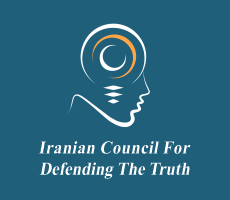The success of negotiation depends on whether both sides would be willing to make concessions and not insist on maximalist demands. Without major concessions the success of talks is unlikely.
It is said that Iran has taken a constructive and serious stance on the Vienna talks; for instance, it has sent a 40-member delegation to Vienna to take part in the new round of negotiation, submitted two draft proposals and reached a new agreement with the IAEA. However, in my view, the number of delegates is not necessarily a sign of seriousness. As to the new proposals, apparently, Iran’s new proposals fall short of what had already been agreed upon during the Rouhani administration. What is clear is that under the Rasisi government Iran’s positions have hardened.Moreover, at this time, other parties to the JCPOA are engaged in a blame game and are trying to portray the other side as responsible for the talks’ failure. In general, after the US withdrawal from the JCPOA and Iran’s retaliatory measures, mistrust between Iran and the US has increased thus making agreement more difficult.
Iran insists that all sanctions and not just nuclear related sanctions should be lifted. However, the US has said that it will only remove sanctions related specifically to nuclear issues. This disagreement is a basic barrier to a successful end to the talks.
Iran has repeatedly stressed that the cornerstone of this round of negotiation is to lift sanctions against Iran and normalize Iran’s economic and trade activities. I think Iran’s demands are justified. However, the mere removal of sanctions may not be enough to guarantee Iran’s return to normal economic relations with the outside world. Moreover, I believe without a significant improvement in US-Iran relations, many international companies will continue to shun Iran, even if some sanctions are removed. This became clear after the signing of the JCPOA in 2015. Despite the suspension of some sanctions, banks and companies did not rush to deal with Iran.
Iran argues that Biden administration is not going to guarantee that the US will not withdraw from the possible future agreement like what Trump did. Indeed, President Biden cannot commit future US administrations to remain in the JCPOA. The only way Iran can be sure that future US administrations would not leave the JCPOA would be to resolve its difference with Washington. Iran’s concerns are justified, but I think demanding a promise from Biden which would be applicable to future administrations is unachievable.
For many years now, I have been saying that Iran’s expectations that Europe might adopt a position different from the US on Iran, including the nuclear issue, are unrealistic. Europe shares US views on Iran, and even if it differed from Washington, it will not risk its relations with the US for Iran’s sake. The fact is that Iran cannot circumvent the US through Europe.
The views and opinions expressed in this article are solely those of the author and do not necessarily reflect the policy or position of ICDT.

